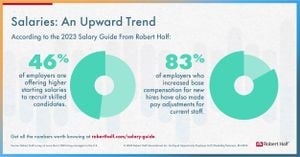Elon Musk, the billionaire entrepreneur and head of the U.S. Government's Performance Management Office, has ignited controversy following his directive to federal employees to report their weekly work achievements. This move has caused significant confusion and pushback across various government agencies.
On February 22, representatives from the Office of Personnel Management (OPM) sent out an email to millions of employees from federal agencies across the United States. The email, titled "What Have You Done This Week?", requested employees to list five bullet points summarizing their work over the past week and to respond by 11:59 PM on February 24, according to reports from Reuters.
Coming on the heels of Musk's social media proclamation urging all federal employees to expect such an email, his directive was met with mixed responses from government entities. Musk had warned, "Failure to respond will be considered as resignation," adding additional pressure on employees.
Federal agencies, including the Departments of Transportation, Treasury, and independent bodies such as the Federal Trade Commission and the Federal Communications Commission, initially insisted their employees comply with Musk's ultimatum. Meanwhile, the Health and Human Services Department and the Federal Emergency Management Agency quickly walked back their demands for compliance.
A notable exception was the FBI, which advised its staff not to respond to Musk's email. FBI Director Kash Patel communicated via email to all personnel, asserting, "The FBI is responsible for all of our personnel evaluation processes and will evaluate according to FBI procedures. Please pause all responses for now." Similarly, the State Department corroborated this stance, emphasizing, "Employees are not obligated to report their activities to external agencies."
The day the email was sent, President Donald Trump commented on Musk's actions, describing the ultimatum as "quite clever". He firmly asserted, "Anyone who fails to respond will be fired," illustrating his support for Musk's decision and dismissing agencies' calls for employees to refrain from responding.
On February 24, amid the public outcry and confusion, OPM clarified the nature of its earlier communication: participation was voluntary, and non-response would not equate to resignation. The OPM's communication aimed to alleviate tensions and gloss over Musk's original message, which portrayed the reporting as mandatory.
NBC reported sources indicating the Government's Performance Office would incorporate the received email responses within their advanced AI systems, examining employee contributions and engagement levels.
This clarification prompted allegations of miscommunication, particularly because the initial OPM directive (propelled by Musk) allegedly included no explicit mention of voluntary reporting, stoking fears of repercussions among employees.
The federal government employees found themselves at the intersection of conflicting directives and the unusual involvement of Musk—who has been acting as a "special government employee"—empowered to influence numerous dismissals and restructuring efforts without congressional oversight.
Musk's overarching goal reportedly remains directed toward slashing federal spending by $1 trillion, aligning with his broader mission of efficiency and accountability within the government.
While some viewed Musk's push for accountability as necessary to root out bureaucratic inertness and fraud, others decried it as exceeding legal boundaries. Critics voiced fears of possible lawsuits arising from inappropriate terminations, with labor attorney Suzanne Summerlin questioning the legality of terminating individuals over non-responses to the ultimatum.
With the OPM's confirmation of voluntary participation, the stakes for federal employees have heightened as they grapple with the implications of this episode. Tensions remain palpable as the government considers how to effectively monitor employee performance without infringing upon rights or inviting legal challenges.
What remains clear is the duality of reactions to Musk's initiatives: President Trump and Musk advocate for aggressive restructuring of federal oversight, positing it as necessary for identifying non-performing employees. On the other hand, agency dissenters decry the heavy-handed approach as indicative of potential workplace unrest.
This saga illuminates the delicate balance between mandatories reporting and individual employee rights, emblematic of larger issues within federal employment culture, and implicates the need for clarity moving forward. With such dramatic proposals on the table, the consequences remain to be seen amid rising tensions between federal authorities and innovative yet controversial figures like Musk.



